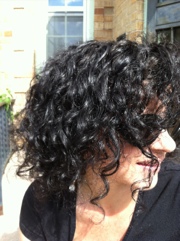Am I the only one who feels like every time I turn around I learn about some new threat to my health from a product I’ve felt safe with for years?
Right now I feel this way about sunscreen.
I already knew that the massive campaign to wear sunscreen has been so successful that many of us are no longer getting enough vitamin D, as sunscreen interferes with the absorption of sunlight through the skin, which our bodies turn into vitamin D. We need vitamin D for everything from calcium absorption to digestion and immune system function. According to Dr. Mercola, sunscreens reduce vitamin D production by as much as 97.5 to 99.9 percent. Vitamin D deficiencies can be implicated in diseases from multiple sclerosis to rheumatoid arthritis, diabetes, and heart disease.
Besides this, most commercially available sunscreens from the familiar leading manufacturers are chemically-based and don’t provide a physical barrier to the more damaging UVA rays. This means that while you might not look burned when you use that Coppertone because it blocks UVB rays, you might still be sustaining significant damage to the skin below the surface that could translate to skin cancers.
This means that the first test of worthiness for a sunscreen is to ensure it contains either titanium dioxide or zinc oxide since either provides a safe physical barrier to both UVA and UVB rays.
OK, got this part. Our household has been aware of this for years and has always chosen sunscreens based on the presence of these ingredients.
But now there’s more to worry about.
If the titanium or zinc has ben nanoized (pulverized into nanoparticles, which are smaller than micronized particles), it can be absorbed by the skin. Natural Solutions July/Aug 2008 issue notes that studies show when these become very small and are exposed to sunlight titanium dioxide can generate free radicals that are linked to cell problems and heart disease and zinc can cause cell mutations. Of course, manufacturers like to pulverize these so that they smooth on more transparantly.
Wait, there’s more.
Other common sunscreen ingredients include Octinoxate (Octyl Methoxycinnamate), which has been linked to thyroid, hormone, and nervous system problems, and Oxybenzone (Benzophenone-3), which can cause hormone disruption and cancer.
Our skin is our largest organ and a quick route to the bloodstream. Every time we slather these on we believe we’re doing the right thing, but in reality we’re toxifying ourselves.
So what’s still safe? Thicker solutions of zinc oxide and titanium dioxide that don’t contain the bad stuff. Beware: even some of the sunscreens at the health food store contain Oxybenzone et al.
The sunscreen I trust? California Baby – SUNSCREEN,SPF30,FRAG FREE . It has micronized titanium dioxide and other natural ingredients without any of the chemicals I’ve mentioned. A good list of safe sunscreens is offered by the Environmental Working Group’s sunscreen guide.
. It has micronized titanium dioxide and other natural ingredients without any of the chemicals I’ve mentioned. A good list of safe sunscreens is offered by the Environmental Working Group’s sunscreen guide.
The more I know, the more dangerous this world becomes. Let’s try to keep each other safe, ok?



 Don’t be fooled: high fructose corn syrup does NOT metabolize the same way that sugar does. Found in most sodas, the effects of drinking HFCS are more like freebasing sugar than eating a comparable amount.
Don’t be fooled: high fructose corn syrup does NOT metabolize the same way that sugar does. Found in most sodas, the effects of drinking HFCS are more like freebasing sugar than eating a comparable amount.